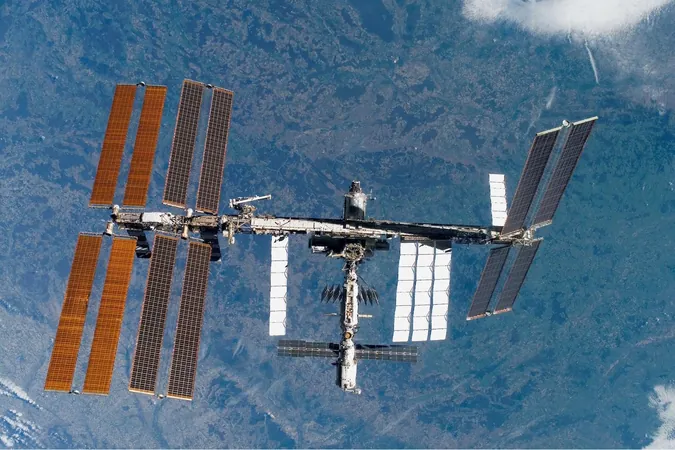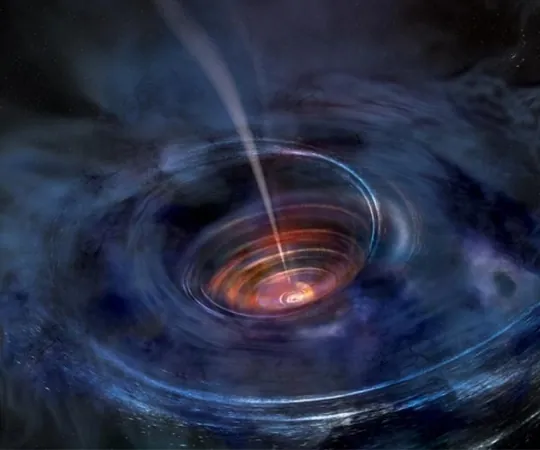
Tensions Rise as Air Leak Threatens the International Space Station – NASA and Russia at Odds!
2024-11-15
Author: Siti
Over the past five years, a troubling situation has been brewing aboard the International Space Station (ISS) as air leaks have been detected in the Russian segment, with tensions escalating between NASA and Roscosmos regarding the cause and implications of this issue. First identified in 2019, the leak originates from a vestibule connecting a docking port to the Russian Zvezda module, which has been in orbit since 2000. Recent assessments suggest that the leak rate has increased alarmingly, prompting NASA to classify it as a high-risk concern as the rate surged from one pound of air per day to over two.
Former NASA astronaut Bob Cabana, now chairing the ISS Advisory Committee, voiced the fears of U.S. officials during a recent meeting. While Russia believes that the structural integrity of the PrK vestibule can withstand the situation, NASA remains skeptical, warning of the potential for catastrophic failure. "The Russians believe that continued operations are safe but they can’t prove to our satisfaction that they are, and the U.S. believes that it’s not safe but we can’t prove to the Russians’ satisfaction that that’s the case," Cabana explained.
Discontent lies in the differing opinions on the leak's cause. Russian teams attribute it to high cyclic fatigue influenced by micro vibrations, while NASA experts consider several factors, including mechanical stress, material properties, and environmental exposure, contributing to the deterioration. These conflicting interpretations further complicate the ongoing discussions between the two agencies.
Adding to the urgency, a recent report from NASA’s Office of Inspector General emphasized the gravity of the leak and its implications for crew safety. An official statement revealed a lack of consensus between NASA and Roscosmos on when the leak might escalate to a critical level. As both agencies continue to monitor the situation, they remain in discussions, with Roscosmos expressing confidence in their ability to manage the leak.
In the latest developments, the air leak's rate escalated just a week prior to the February 14 launch of the Progress MS-26 cargo spacecraft. The hatch linking Zvezda to the ISS was opened for five days to transfer cargo but was sealed afterward. To mitigate further air loss, NASA and Roscosmos are preparing to close the hatch to the service module when access is unnecessary, with contingency plans to permanently shut off the hatch if the situation worsens. While such a move would not stop ISS operations, it would eliminate a docking port for future spacecraft deliveries.
As the two superpowers wrestle over the air leak crisis, it raises a concerning question: Could this be the start of larger issues for the aging ISS? Targeted for retirement in the next six years, the station’s long-term viability is increasingly uncertain, with wear and tear from the harsh conditions of space coming to light. The thought of losing the ISS’s unique capabilities looms large, leaving both nations to ponder the future of human space exploration amid discord. Will they put their differences aside to ensure the safety of crew members and the legacy of this monumental project? Only time will tell in this high-stakes space drama!





 Brasil (PT)
Brasil (PT)
 Canada (EN)
Canada (EN)
 Chile (ES)
Chile (ES)
 España (ES)
España (ES)
 France (FR)
France (FR)
 Hong Kong (EN)
Hong Kong (EN)
 Italia (IT)
Italia (IT)
 日本 (JA)
日本 (JA)
 Magyarország (HU)
Magyarország (HU)
 Norge (NO)
Norge (NO)
 Polska (PL)
Polska (PL)
 Schweiz (DE)
Schweiz (DE)
 Singapore (EN)
Singapore (EN)
 Sverige (SV)
Sverige (SV)
 Suomi (FI)
Suomi (FI)
 Türkiye (TR)
Türkiye (TR)